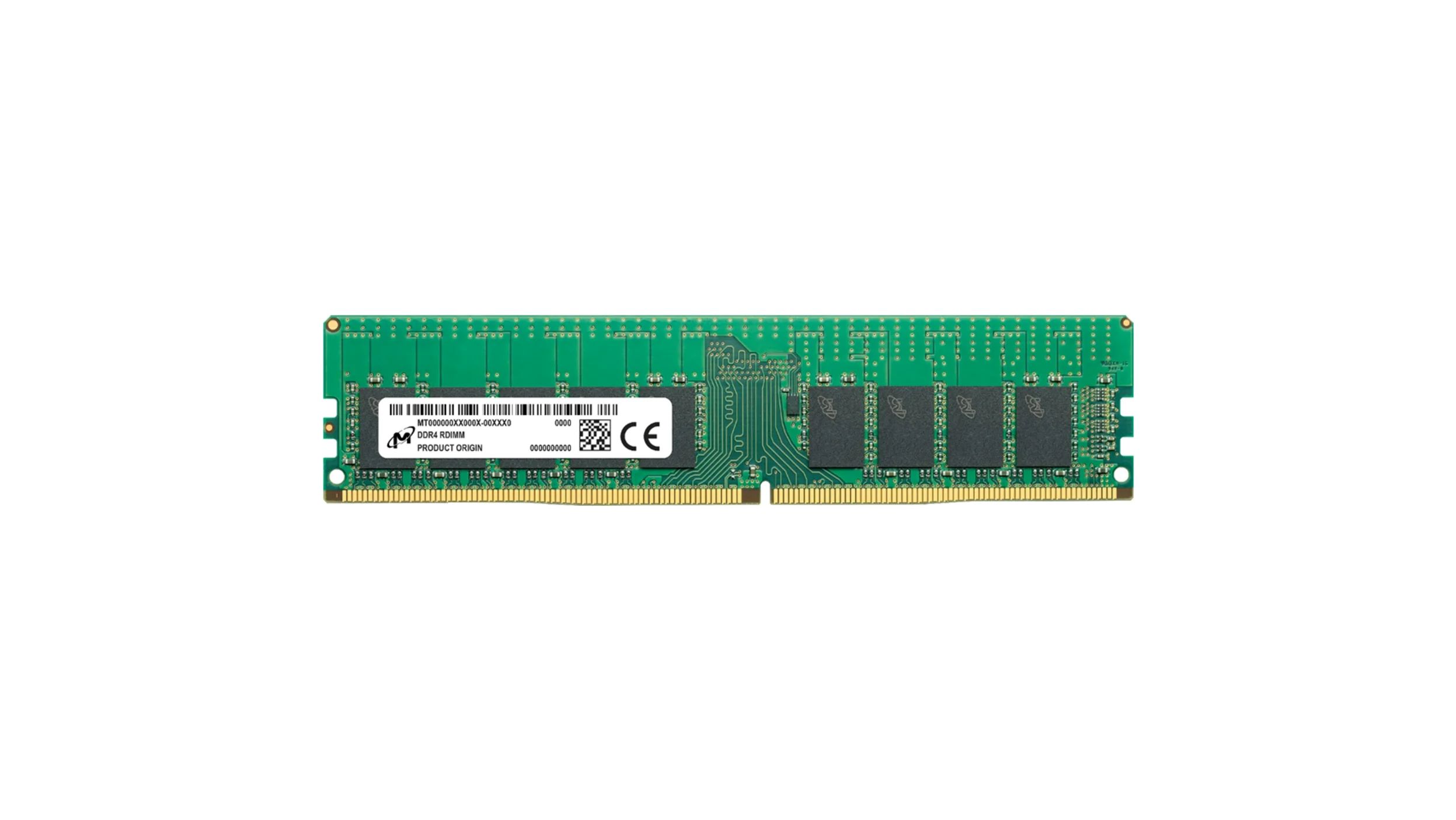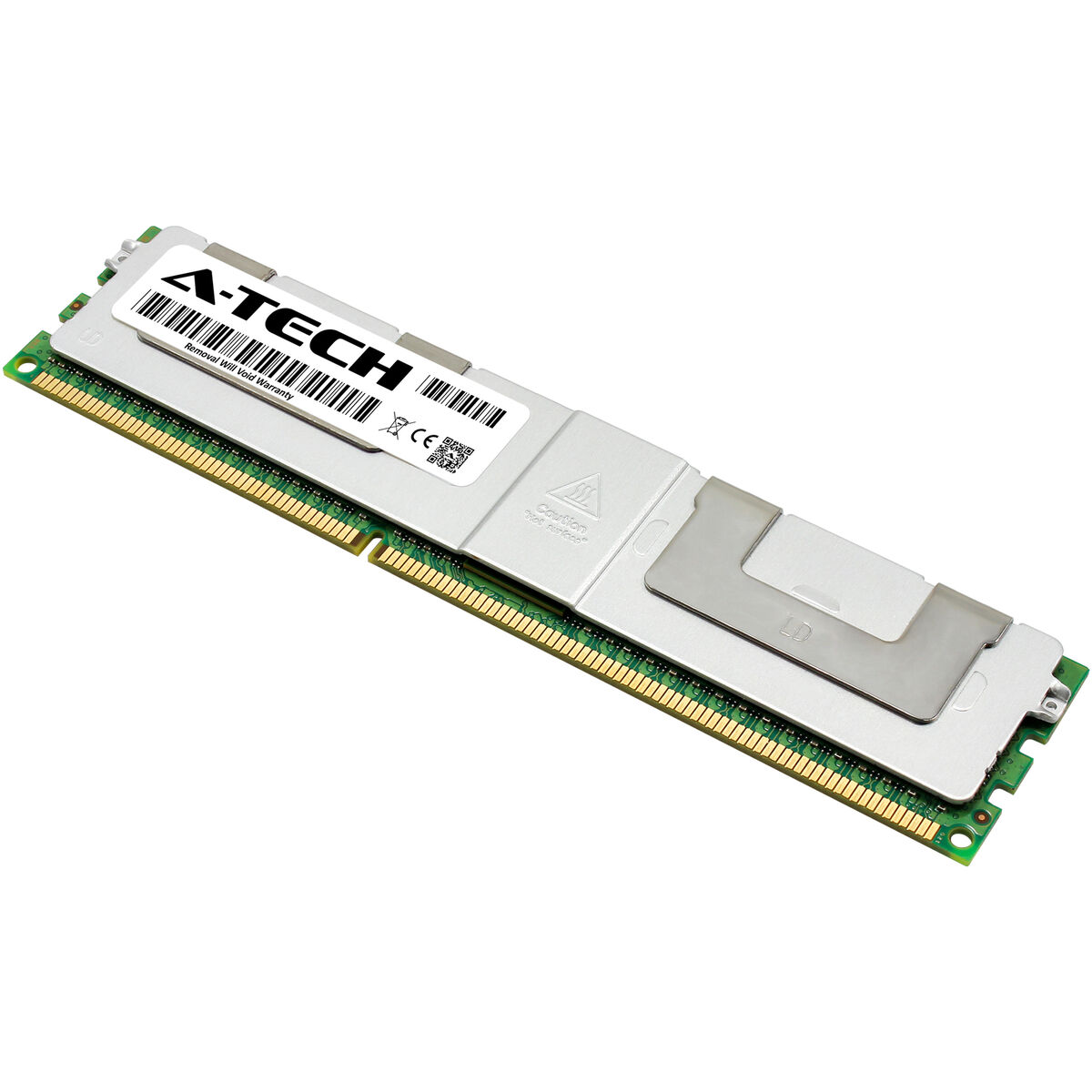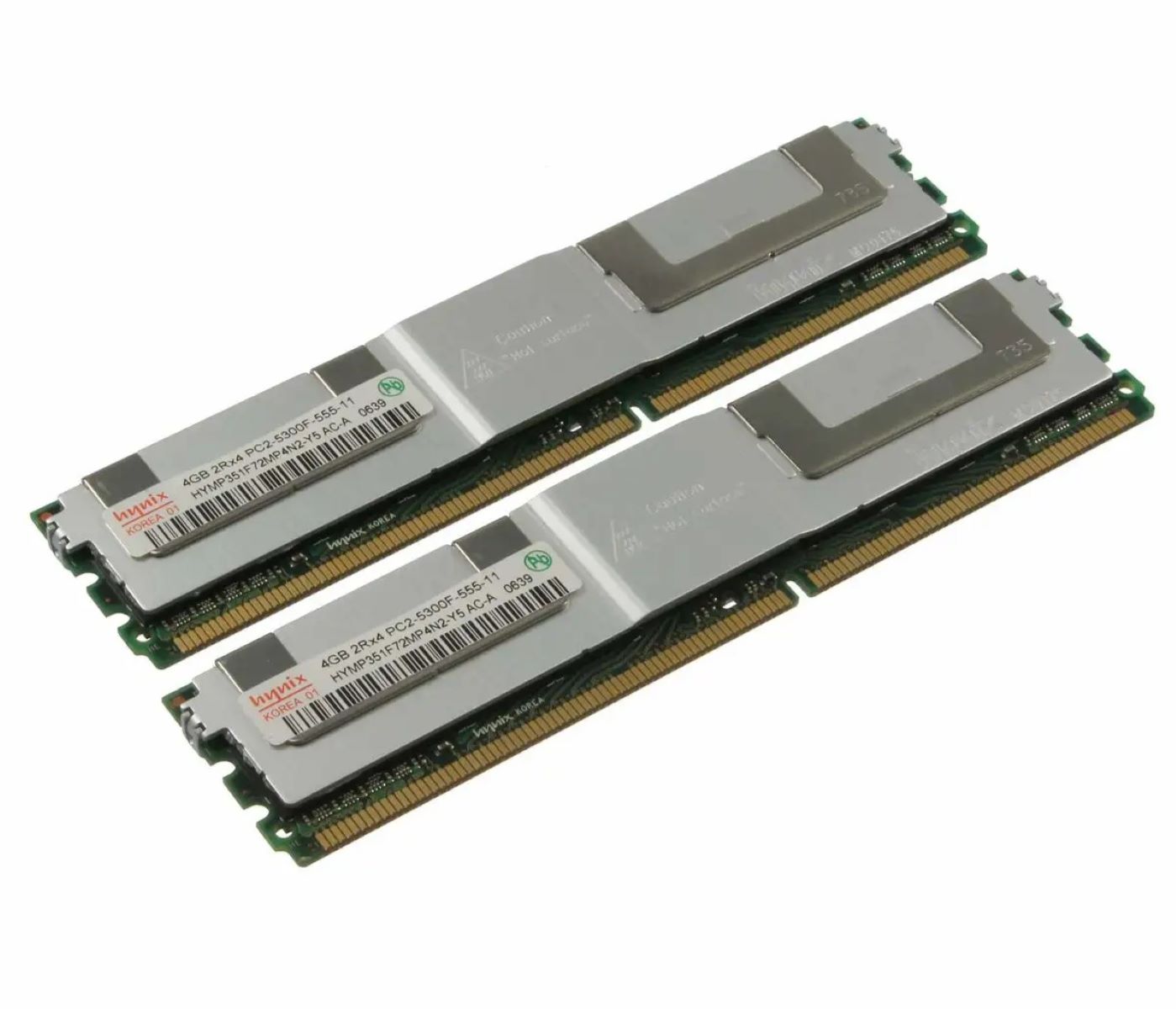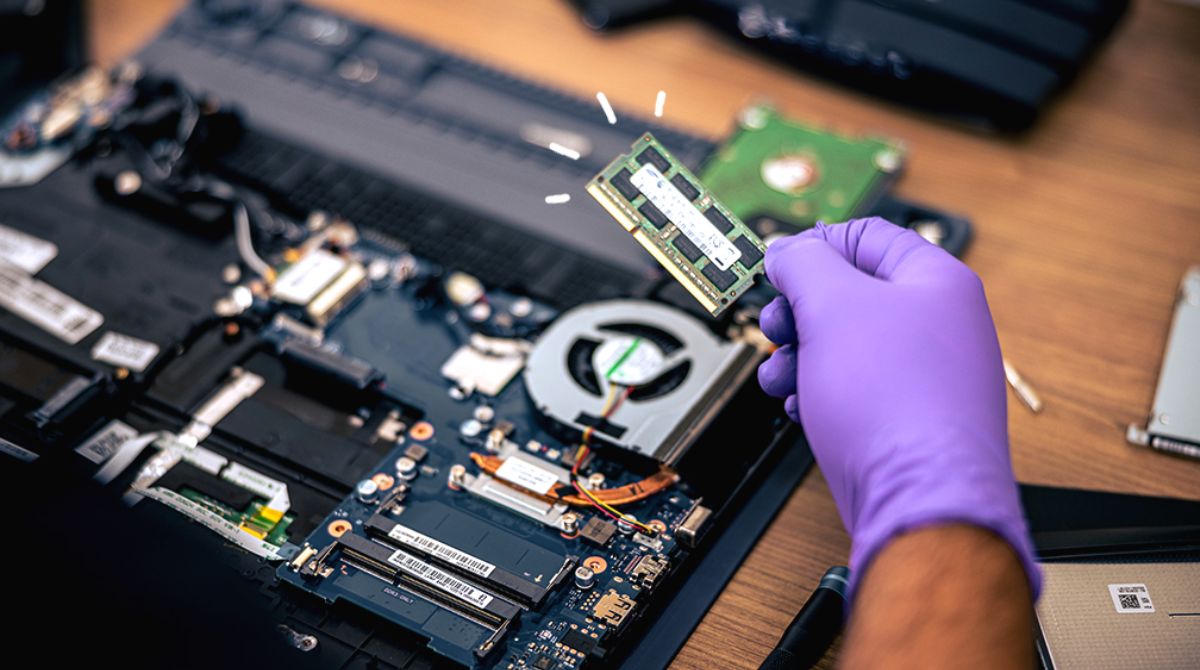Overview
When it comes to computer memory, there are different types available to suit various needs. One crucial factor to consider is the error correction capabilities of the RAM. While ECC (Error-Correcting Code) RAM is commonly known for its ability to detect and correct memory errors, there is also Non-ECC RAM.
Non-ECC RAM, also known as non-error correcting RAM, is a type of computer memory that lacks the error correction feature found in ECC RAM. It is widely used in consumer-grade computers, gaming systems, and other applications that do not require extensive data integrity and error correction.
The main difference between Non-ECC RAM and ECC RAM lies in their ability to correct errors. ECC RAM utilizes additional bits to detect and correct single-bit errors and detect multi-bit errors, ensuring data integrity. On the other hand, Non-ECC RAM does not have this error detection and correction capability, making it more affordable and accessible for general users.
One of the key advantages of Non-ECC RAM is its lower cost compared to ECC RAM. Since Non-ECC RAM does not require the additional hardware and complexity for error correction, it is more budget-friendly for users looking to upgrade their memory without breaking the bank.
In terms of performance, Non-ECC RAM is on par with ECC RAM when it comes to day-to-day tasks and most applications. For the average user, the difference in performance is negligible, and Non-ECC RAM will provide sufficient memory capacity and speed for their needs.
It’s worth noting that while ECC RAM is commonly used in servers, workstations, and mission-critical systems where data integrity is of utmost importance, Non-ECC RAM is ideal for gaming, personal computing, and other less critical applications.
However, the lack of error correction is a significant drawback of Non-ECC RAM. In environments where data reliability is crucial, such as scientific research, financial institutions, or large-scale data processing systems, ECC RAM is the preferred choice to ensure accurate and consistent results.
Ultimately, the decision between Non-ECC RAM and ECC RAM depends on the specific needs and budget of the user. For most general users, Non-ECC RAM provides a cost-effective solution without sacrificing significant performance and reliability. However, if data integrity is paramount, investing in ECC RAM is the best choice.
In the upcoming sections, we’ll explore further the differences between Non-ECC RAM and ECC RAM, as well as the advantages and disadvantages of Non-ECC RAM in more detail.
What is ECC RAM?
ECC RAM, short for Error-Correcting Code RAM, is a type of computer memory that incorporates advanced error correction capabilities to ensure data integrity and minimize the risk of memory errors or corruption. It is commonly used in critical systems such as servers, workstations, and other applications where reliable and accurate data processing is essential.
The primary function of ECC RAM is to detect and correct memory errors. It achieves this by adding extra bits to each memory word, which are used to store parity or check bits. These additional bits allow the ECC RAM to detect and correct single-bit errors that may occur during data storage or retrieval.
In addition to detecting and correcting single-bit errors, ECC RAM is also capable of detecting multi-bit errors. It does this by comparing the stored data with the calculated check bits. If the comparison reveals an inconsistency, the ECC RAM can determine that an error has occurred and take appropriate action, such as correcting the error or notifying the system.
ECC RAM offers several advantages over non-ECC RAM. The most significant advantage is its ability to provide a higher level of data integrity and reliability. By detecting and correcting errors in real-time, ECC RAM ensures that the data remains accurate and consistent throughout the memory system, reducing the risk of data corruption or system crashes.
Furthermore, ECC RAM is designed to be more robust and resilient to memory errors. This is particularly important in environments where a single memory error can have severe consequences, such as in financial institutions, research labs, or data processing centers. ECC RAM helps maintain data integrity and prevents undetected errors from affecting critical operations or calculations.
However, it’s worth noting that ECC RAM comes at a higher cost compared to non-ECC RAM. The additional hardware and complexity required for error detection and correction contribute to the higher price tag. As a result, ECC RAM is not commonly found in consumer-grade computers or non-critical applications where the cost may be a limiting factor.
In summary, ECC RAM is a specialized type of computer memory that offers advanced error correction capabilities. It is primarily used in critical systems to ensure data integrity and minimize the risk of memory errors. While more expensive than non-ECC RAM, ECC RAM provides a higher level of data reliability and is crucial in environments where accuracy and precision are paramount.
What is Non-ECC RAM?
Non-ECC RAM, also known as non-error correcting RAM, is a type of computer memory that does not incorporate error correction capabilities. Unlike ECC RAM, which is designed to detect and correct memory errors, Non-ECC RAM does not have the ability to identify or fix errors that may occur during data storage or retrieval.
Non-ECC RAM is widely used in consumer-grade computers, laptops, and gaming systems where error correction is not a critical requirement. It is more affordable and accessible for users who prioritize cost-effectiveness over advanced error detection and correction features.
The absence of error correction mechanisms is the primary difference between Non-ECC RAM and ECC RAM. Non-ECC RAM does not employ additional bits for parity or check bits, which are used in ECC RAM to detect and correct errors. As a result, Non-ECC RAM offers lower manufacturing costs and simpler memory modules.
While Non-ECC RAM lacks error correction capabilities, it still provides reliable data storage and retrieval for everyday tasks and general computing needs. For the average user, the lack of ECC functionality does not significantly impact day-to-day applications such as web browsing, document editing, and multimedia playback.
Non-ECC RAM is also suitable for gaming enthusiasts as it provides ample memory capacity and satisfactory performance for most gaming applications. However, in highly competitive esports or professional gaming environments, where every millisecond counts, some players may opt for ECC RAM to minimize the risk of potential memory-related issues.
One of the main advantages of Non-ECC RAM is its affordability. Since it does not require the additional hardware and complexity for error correction, Non-ECC RAM tends to be less expensive than ECC RAM. This makes it an attractive choice for users on a budget or those looking to upgrade their system without incurring significant costs.
However, it is essential to consider the potential drawbacks of Non-ECC RAM. Without error correction capabilities, data integrity may be compromised in certain scenarios. In critical applications where accuracy and reliability are crucial, such as scientific research, financial data analysis, and server environments, the use of ECC RAM is highly recommended.
In summary, Non-ECC RAM is a type of computer memory that lacks error correction capabilities. It is commonly used in consumer-grade computers and gaming systems, offering cost-effective memory solutions for everyday computing needs. While it may not be suitable for critical applications that require maximum data integrity, Non-ECC RAM provides satisfactory performance and reliability for the average user.
How does Non-ECC RAM differ from ECC RAM?
Non-ECC RAM and ECC RAM are two distinct types of computer memory that differ in their error correction capabilities. Here are the key differences between Non-ECC RAM and ECC RAM:
Error Detection and Correction: The main difference lies in their ability to detect and correct errors. ECC RAM incorporates additional bits to detect and correct single-bit errors and detect multi-bit errors. In contrast, Non-ECC RAM does not have error correction capabilities, meaning it cannot detect or correct errors that may occur during data storage or retrieval.
Data Integrity: ECC RAM provides a higher level of data integrity and reliability compared to Non-ECC RAM. It ensures that the data remains accurate and consistent throughout the memory system by correcting errors in real-time. Non-ECC RAM, lacking error correction features, has a higher chance of encountering undetected errors that can lead to data corruption or system instability.
Cost: Non-ECC RAM is more affordable compared to ECC RAM. The absence of additional hardware for error correction contributes to the lower manufacturing costs of Non-ECC RAM modules. This makes Non-ECC RAM a cost-effective choice for users on a budget or those who do not require advanced error detection and correction capabilities.
Performance: In terms of performance, Non-ECC RAM is comparable to ECC RAM for most day-to-day tasks and general applications. The difference in performance between the two types of memory is negligible for the average user. However, in critical applications where data accuracy and reliability are crucial, ECC RAM may offer a slight advantage.
Application: ECC RAM is commonly used in critical systems such as servers, workstations, and mission-critical applications where data integrity is paramount. It is ideal for environments where a single memory error can have severe consequences. Non-ECC RAM, on the other hand, is suitable for consumer-grade computers, gaming systems, and non-critical applications that prioritize cost-effectiveness and offer satisfactory performance.
Compatibility: Another difference to consider is compatibility. Some systems or motherboards may only support either ECC RAM or Non-ECC RAM, so it is important to check the system specifications before making a memory upgrade. ECC RAM is typically backward compatible with Non-ECC systems, but the error correction features may not be utilized.
In summary, the primary differences between Non-ECC RAM and ECC RAM lie in their error correction capabilities, data integrity, cost, performance, application suitability, and compatibility. Non-ECC RAM provides a cost-effective solution for general users, while ECC RAM offers enhanced data integrity and is crucial in critical applications that require maximum reliability and accuracy.
Advantages of Non-ECC RAM
Non-ECC RAM, despite not having error correction capabilities, offers several advantages that make it a popular choice for many computer users. Here are the key advantages of Non-ECC RAM:
Cost-Effectiveness: One of the significant advantages of Non-ECC RAM is its affordability compared to ECC RAM. Since Non-ECC RAM does not require additional hardware for error correction, the manufacturing costs are lower. This makes Non-ECC RAM a cost-effective option for users who are on a budget or looking for a more affordable memory upgrade.
Accessible to General Users: Non-ECC RAM is widely available and compatible with consumer-grade computers, laptops, and gaming systems. It is designed to meet the memory needs of general users who prioritize affordability and satisfactory performance over advanced error correction features. Non-ECC RAM provides ample memory capacity and speed for everyday computing tasks and non-critical applications.
Comparable Performance: For the average user, Non-ECC RAM offers comparable performance to ECC RAM in most day-to-day tasks and general applications. The difference in performance between the two types of memory is usually negligible and does not significantly impact overall system performance. Non-ECC RAM provides sufficient memory capacity and speed for smooth multitasking, web browsing, document editing, and multimedia playback.
Easy Installation: Non-ECC RAM is straightforward to install, making it accessible to users who prefer to upgrade their memory themselves. With compatible memory slots on the computer’s motherboard, users can simply remove the existing RAM modules and replace them with Non-ECC RAM modules. This allows for a hassle-free and quick memory upgrade process.
Broad Compatibility: Non-ECC RAM is compatible with a wide range of computer systems, motherboards, and operating systems. It can be used in various configurations, including single-channel, dual-channel, and quad-channel memory setups. This compatibility ensures that users have flexibility when choosing memory upgrades for their specific hardware requirements.
Frequent Price Reductions: Non-ECC RAM is mass-produced and widely utilized in consumer electronics, resulting in frequent price reductions and promotional offers. This makes it easier for users to find deals and discounts on Non-ECC RAM modules, further enhancing its cost-effectiveness and accessibility.
While Non-ECC RAM lacks the error correction capabilities of ECC RAM, it provides a cost-effective solution for general users who prioritize affordability, accessibility, and satisfactory performance. It is suitable for everyday computing needs, gaming, and non-critical applications where the impact of occasional memory errors is minimal. However, it is essential to consider the specific requirements and demands of the intended usage to determine if Non-ECC RAM is the best choice.
Disadvantages of Non-ECC RAM
Although Non-ECC RAM offers affordability and satisfactory performance, it does come with some disadvantages that users should consider before making a memory choice. Here are the key disadvantages of Non-ECC RAM:
Lack of Error Correction: One of the significant drawbacks of Non-ECC RAM is its inability to detect and correct memory errors. Without error correction capabilities, Non-ECC RAM has a higher chance of encountering undetected errors that may lead to data corruption or system instability. This can be a concern in critical applications where data integrity is essential, such as financial institutions or scientific research environments.
Increased Risk of System Instability: Non-ECC RAM’s lack of error correction can increase the risk of system instability. Unrecognized errors in the memory can cause system crashes, application failures, or data loss. While these instances may be relatively rare for general users, the absence of error correction increases the vulnerability of the system to memory-related issues.
Not Suitable for Critical Applications: Due to the lack of error correction, Non-ECC RAM is not suitable for critical applications that require maximum data integrity and reliability. In scientific research, financial data analysis, or large-scale data processing, errors can have significant consequences, leading to inaccurate results or financial losses. ECC RAM is the preferred choice in these scenarios as it provides advanced error correction mechanisms.
Limited Scalability: Non-ECC RAM may have limited scalability options compared to ECC RAM. In highly demanding or resource-intensive applications, such as video editing or virtualization, Non-ECC RAM may have limitations in handling larger memory capacities or multiple memory modules. ECC RAM, with its advanced error correction capabilities, can handle a wider range of memory configurations and provide better scalability options.
Compatibility Issues: Although Non-ECC RAM is generally compatible with a wide range of systems and motherboards, there can be compatibility issues with certain hardware configurations. It is essential to ensure that the chosen Non-ECC RAM modules are compatible with the system’s memory slots, the motherboard’s specifications, and the operating system. Checking compatibility before purchasing and installing Non-ECC RAM is crucial to avoid any potential issues.
Opportunity Cost: While Non-ECC RAM is more affordable compared to ECC RAM, there is an opportunity cost associated with choosing Non-ECC RAM. By opting for Non-ECC RAM, users forego the advanced error correction capabilities provided by ECC RAM, which can be crucial in certain applications. Users should carefully consider their specific needs and the potential risks of not having error correction before settling on Non-ECC RAM.
In summary, while Non-ECC RAM offers affordability and satisfactory performance for general users, it does have certain disadvantages. The lack of error correction, increased risk of system instability, limited scalability options, potential compatibility issues, and the trade-off of advanced error correction mechanisms are factors to consider before choosing Non-ECC RAM. It is important to assess the specific needs and requirements of the intended usage to determine if Non-ECC RAM’s advantages outweigh its drawbacks.
Is Non-ECC RAM Suitable for You?
Whether Non-ECC RAM is suitable for you depends on your specific needs, budget, and the nature of your computing tasks. Here are some factors to consider when determining if Non-ECC RAM is the right choice for you:
Usage and Application: Non-ECC RAM is suitable for general users, gamers, and those who engage in non-critical applications. If you primarily use your computer for everyday tasks like web browsing, document editing, multimedia playback, and casual gaming, Non-ECC RAM provides sufficient performance and memory capacity for these activities.
Budget: If cost is a significant consideration for you, Non-ECC RAM is the more affordable option compared to ECC RAM. Non-ECC RAM modules are generally less expensive due to their simplicity and lack of error correction capabilities. If you have a limited budget or are looking for a budget-friendly memory upgrade, Non-ECC RAM can be a suitable choice.
Risk Tolerance: Consider your tolerance for potential memory errors and the impact they may have on your system. For most general users, the occasional memory error is unlikely to cause significant issues. However, if you are working on critical projects, handling sensitive data, or need precise, error-free calculations, ECC RAM would be a more suitable choice to minimize the risk of undetected errors.
Future Scalability: If you anticipate the need for future scalability in terms of memory capacity or expansion options, ECC RAM provides better scalability compared to Non-ECC RAM. ECC RAM is designed to handle larger memory capacities and offers support for multiple memory modules, making it a better option for resource-intensive applications or upgrading memory in the future.
Motherboard Compatibility: Ensure that your motherboard supports Non-ECC RAM. Some systems or motherboards may only support one type of RAM, so it’s crucial to check the specifications before making a memory upgrade. ECC RAM is generally backward compatible with Non-ECC systems, but it would not utilize its error correction features in such scenarios.
Professional or Critical Applications: If you work in professional fields such as finance, scientific research, or data processing, where data integrity and accuracy are paramount, ECC RAM is highly recommended. Critical applications require maximum data reliability, and the error correction capabilities of ECC RAM play a crucial role in minimizing errors and ensuring accurate results.
In summary, Non-ECC RAM is suitable for general users, gamers, and those who engage in non-critical applications, providing cost-effective memory solutions without sacrificing satisfactory performance. However, if data integrity is critical, or if you need scalability options or are working on professional or critical projects, ECC RAM would be a more suitable choice. Consider your specific needs, budget, and the nature of your computing tasks when deciding whether Non-ECC RAM is suitable for you.
Conclusion
When it comes to choosing between Non-ECC RAM and ECC RAM, it is essential to consider your specific needs and budget. Non-ECC RAM offers a cost-effective solution for general users, gamers, and those who engage in non-critical applications. It provides satisfactory performance for everyday tasks, multimedia playback, and casual gaming without the need for advanced error correction capabilities.
Non-ECC RAM’s affordability, wide availability, and ease of installation make it a popular choice for consumer-grade computers and gaming systems. It provides ample memory capacity and speed for most general computing needs without significantly affecting overall system performance.
On the other hand, ECC RAM offers advanced error detection and correction capabilities, ensuring maximum data integrity and reliability. It is suitable for critical applications, professional use-cases, and environments where accurate calculations, data analysis, and results are of utmost importance.
Before making a decision, consider factors such as your usage patterns, risk tolerance, the nature of your computing tasks, and future scalability requirements. If you prioritize affordability, satisfactory performance, and don’t have critical data integrity needs, Non-ECC RAM may be the right choice.
However, if you work with sensitive data, require precision, accuracy, and maximum data reliability, or anticipate the need for future scalability, ECC RAM is recommended. ECC RAM’s error correction capabilities minimize the risk of memory errors and ensure accurate data processing and reliable system performance.
Ultimately, the choice between Non-ECC RAM and ECC RAM depends on your specific requirements and budget. Assess your needs, consider the advantages and disadvantages of each type of memory, and make an informed decision that aligns with your computing needs and priorities.

























